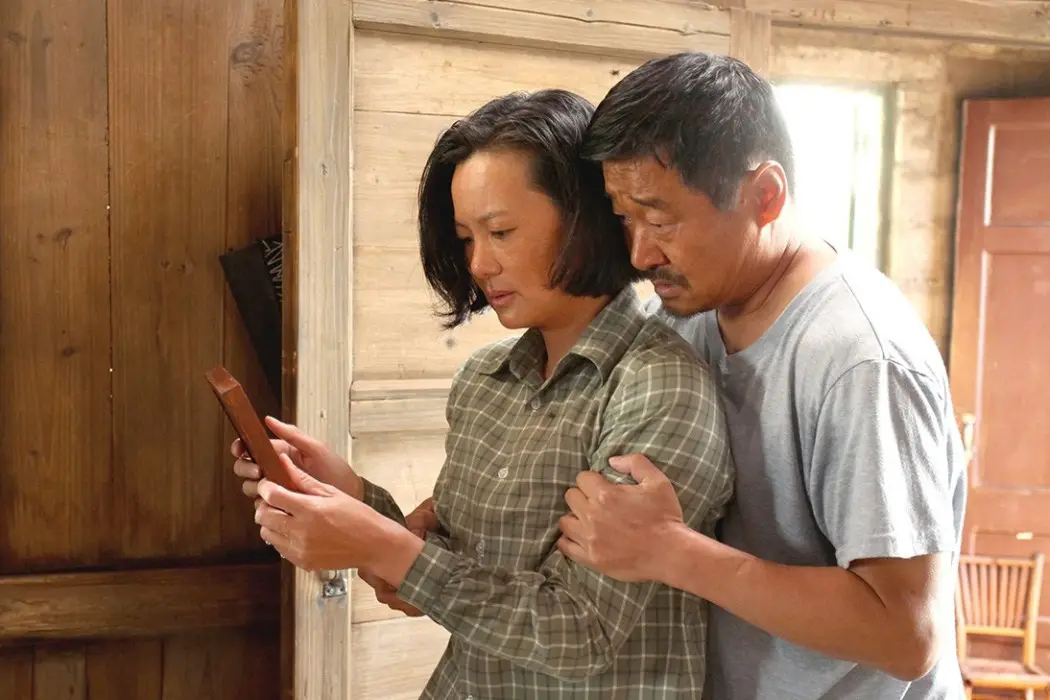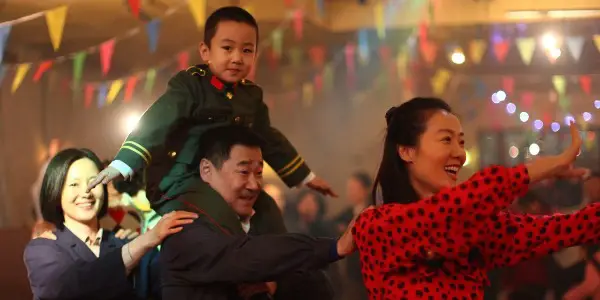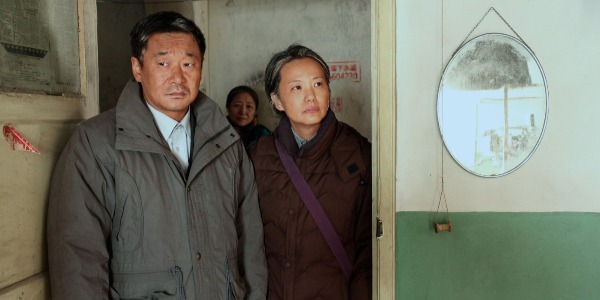SO LONG, MY SON: At Three Hours, It Really Is

Alistair is a 25 year old writer based in Cambridge.…
Few films live up to their title quite like So Long, My Son, which takes a leisurely three hours to arrive at its big dramatic revelation and attempt to find some catharsis within an unimaginable pain. Filmmaker Wang Xiaoshuai uses the spaces between a fairly simple story about grief throughout the ages as a way to explore the changing face of Chinese society – in particular, how the one child policy inflicted pain on families, and rewarded those who set an example by refusing to conceive.
Like other filmmakers associated with China’s sixth generation movement, in particular Jia Zhangke, Xiaoshuai may not make a story as a deliberate metaphor for cultural criticism in the way his country has changed, but he definitely uses his narratives as a jumping off point to explore the damage inflicted by his country’s history.
My Son, My Son, What Have Ye Done
But in the case of So Long, My Son, both the intimate character drama and the larger political canvas its drawn upon lose steam due to the deliberately disjointed narrative. In order to hold off revealing too much about the unfortunate death of a child at the story’s outset, we are thrown into various periods throughout a narrative spanning two decades, slowly pulling back the curtain before revealing a cause of death that never needed to be treated as an enigma.
The non linear structure doesn’t feel warranted for this story, and often causes confusion as it skirts between different eras at random, lessening the impact of the character arcs and never coherently dissecting the historical context that forms the backbone of the narrative. It’s an undeniably ambitious film – but one that could only reach its lofty aims if stripped of an unnecessary structural gimmick.

The story focuses on two families, most notably Liu Yaojun (Wang Jingchun), Wang Liyun (Yong Mei) and their son Xingxing, who we see drown in a reservoir no less than ten minutes into the film. Only, we then flash forward nearly two decades to see that their son is alive and well. Well, not exactly – as the plot disentangles further, we discover they adopted another boy and changed his name to that of their deceased son, as we see how their life changed in the intervening years.
This is contrasted with another couple, who they were close friends with prior to their son’s death, who seem to benefit from the social and economic reforms of the country while Liu and Wang are increasingly left behind.
Hurt by a Non Linear structure
The non linear structure, teasing out the details of just how stark the contrast between the two couples has been since the tragedy, is designed to reinforce a greater mystery behind Xingxing’s death. But this isn’t a revelation that’s particularly out of the ordinary, and never justifies such a structure; it becomes a distancing tool, leaving the audience to try to piece together their place within the chronology of the drama at any given moment, and lessening the impact of both a heartfelt character study and a far more epic portrayal of a country in transition.
Because nothing about So Long, My Son is particularly convoluted, and if Xiaoshuai were to understand that the mystery isn’t particularly unexpected, and the big reveal never needed to be hidden from view, then the end result would be a far more satisfying drama, told in a linear style that cuts straight through to a family’s grief throughout the years.

And the vivid depiction of key moments in late 20th century Chinese history would also have more potency too. Surprisingly, in a year when the Chinese censors have been cracking down on films assumed to shine a negative light on Chinese government policy (through allegory or otherwise) more than before, So Long, My Son has managed to tour the festival circuit and be released internationally with no trouble whatsoever.
This could be because of the abolition of the one child rule earlier this decade, so they are less skeptical of approving a film that depicts the moral dilemmas it caused, but even with that in mind, depicting the harm caused to workers by the country’s varying economic reforms over the years is a surprise. It’s these moments where the political commentary and the character drama work best in tandem, and even then, would be far more powerful if they were more cleanly integrated into the drama, rather than appearing as snapshots in a non linear collage.
So Long, My Son: Conclusion
There are plenty of reasons to recommend Wang Xiaoshuai’s film, but the greatness is infuriatingly just out of grasp. If you can appreciate how it structures the different paths of two families across two decades, then you’ll love the balance between the intimate and the epic. For me, this was a distancing tool, and it was hard to carry on with this wayward Son.
So Long, My Son will be released in the UK on December 6 in cinemas and Curzon On Demand.
Does content like this matter to you?
Become a Member and support film journalism. Unlock access to all of Film Inquiry`s great articles. Join a community of like-minded readers who are passionate about cinema - get access to our private members Network, give back to independent filmmakers, and more.
Alistair is a 25 year old writer based in Cambridge. He has been writing about film since the start of 2014, and in addition to Film Inquiry, regularly contributes to Gay Essential and The Digital Fix, with additional bylines in Film Stories, the BFI and Vague Visages. Because of his work for Film Inquiry, he is a recognised member of GALECA, the Gay & Lesbian Entertainment Critics' Association.













